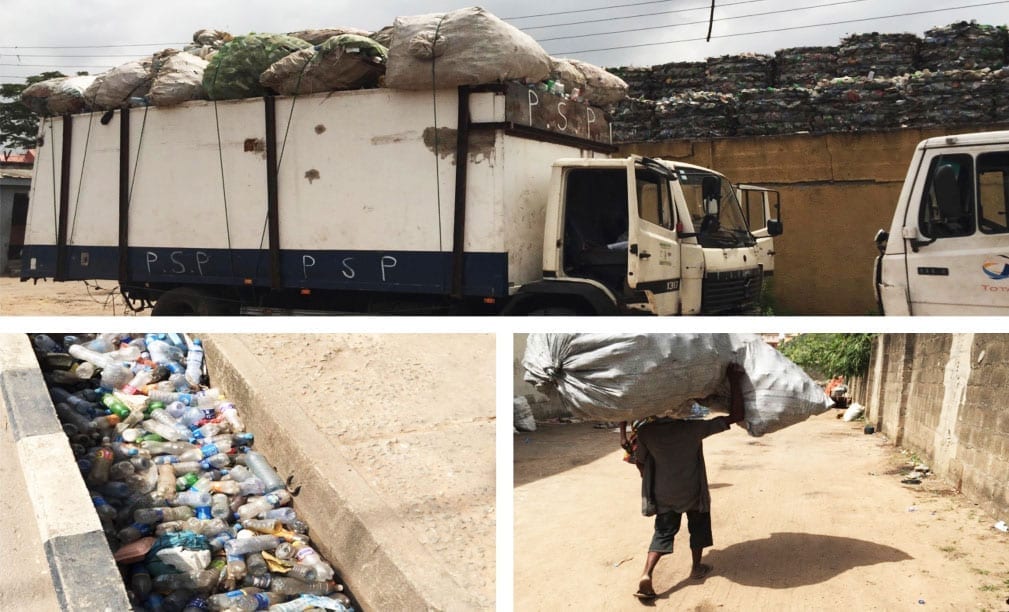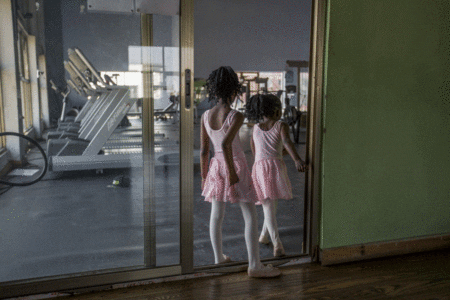Developing differently: social enterprise innovations for the circular economy in Lagos Nigeria
Part of our research aims to learn from grass-root initiatives operating in the circular economy in Nigeria—their hybrid organising strategies and, particularly, their attempts to propagate a circular economy culture at the individual, organisational and societal levels. Ahead of our forthcoming workshop in Lagos, CUSP researcher Adeyemi Adelekan reports from his PhD project and outlines some of the specific challenges developing countries such as Nigeria face.

The big question at the heart of CUSP’s mission is how human flourishing is possible within a resource finite planet and with soaring global population. As I prepare to explore issues around running a social enterprise at a CUSP workshop organised in Lagos Nigeria, I pondered on what this central question means in the context of a ‘developing country’. In what ways can a country like Nigeria develop its economy in a manner that protects the planet and people?
I am using the city of Lagos as a case study for my PhD research. Described as a mega-city, it is one of the largest and most industrialised cities in Nigeria with a population of up to 21million people and rising. It has one of the fastest-growing economies in Africa, fuelled by a rising middle class and a general increase in people’s spending habits. These increases have greatly influenced the consumption and disposal patterns of the city’s inhabitants, which also comes with some deep environmental and social issues. Here, I am engaging with social enterprises carrying out waste-related activities in various communities across the state, looking to tackle these issues, and the challenges they face.
One of these issues facing Lagos is the problem of plastic wastes. The rate of consumption of packaged drinks in Nigeria is generally high. Its bottled drinks market is among the fastest growing globally due to almost non-existent municipal water supplies, arid weather conditions and population growth. This burgeoning market has created opportunities for small and medium-sized businesses to emerge and compete with large organisations. While this created jobs for thousands of people, it has also become one of the biggest polluters of the environment. As I travel across Lagos talking to several social enterprises, I see the extent of the damage caused by this growing market: from blocked drains, littered streets to polluted lagoons and beaches.
Alongside the spread of the circular economy model in the West, alternative models are emerging and starting to gain the attention of policy makers, private sector and the civil society also in Nigeria. Much of this new level of awareness can be credited to the works of ambitious social enterprises, organising at the grassroots to create a new business and culture around plastic wastes.
These enterprises, driven by a purpose to curb the menace of plastic waste in the state have been innovating business models, and begun incentivising households to sort their plastic wastes for collection. The collection is often done using bicycles, tricycles or trucks in some instances, and points are awarded to the household member, which can then be exchanged for gift items ranging from food, clothing or cash.
There are also other forms of enterprises that turns plastic wastes into furniture products, some of which are donated to deprived schools and parks, while other social enterprises focus on advocacy work. These grass-root movements have created a whole new waste recycling sector that builds on the collection of volumes of plastic waste, thereby empowering deprived communities and thousands of households, who were formally living below poverty lines.
My research indicates that those benefiting most from the work of these enterprises are the most vulnerable in the society—older women, single mothers and children, who are now able to have access to a new source of income, reliable healthcare and education simply by picking, cleaning or sorting used plastics, freely available in their surroundings and beyond. And that’s the tricky part: While consuming “less stuff” is necessary in order to resuscitate our degrading environment, collecting “more stuff” here allows grass-root organisations to do the much needed social good in their communities. Some of these enterprises are still trying to scale up their capacities for more plastics, get financial grants to expand their reach, figure out logistics, come together to have a stronger voice to influence policies and to shape market prices for plastics and other wastes etc. In my time spent at these enterprises, I saw a lot of middle-aged and older women coming to do regular and bulky drop-offs of their accumulated plastic wastes in exchange for a certain number-points, which to them means either food for the day or school fees for their child/children. The more plastics they are able to aggregate, the more their points and the bigger their reward.
Clearly, there are ethical questions to be asked: about the quality and safety of this type of work and the safety of those, particularly in cases where children are involved. Also, there seems to be a general agreement among the social enterprises I’ve met that they are still scratching the surface when it comes to plastic wastes in Lagos. This highlights the city’s consumption challenges, as well as, their capacity as enterprises to meet our challenges in a sustainable way.
That’s the nature of the challenges facing developing countries such as Nigeria. The crux of these issues is really about finding the right balance, where a city like Lagos or organisations operating within such contexts, can have less impact on nature while working towards reducing poverty amongst the most vulnerable people and communities. Borrowing Serge Latouche’s phrase, this is really about finding ways to “develop differently”.



